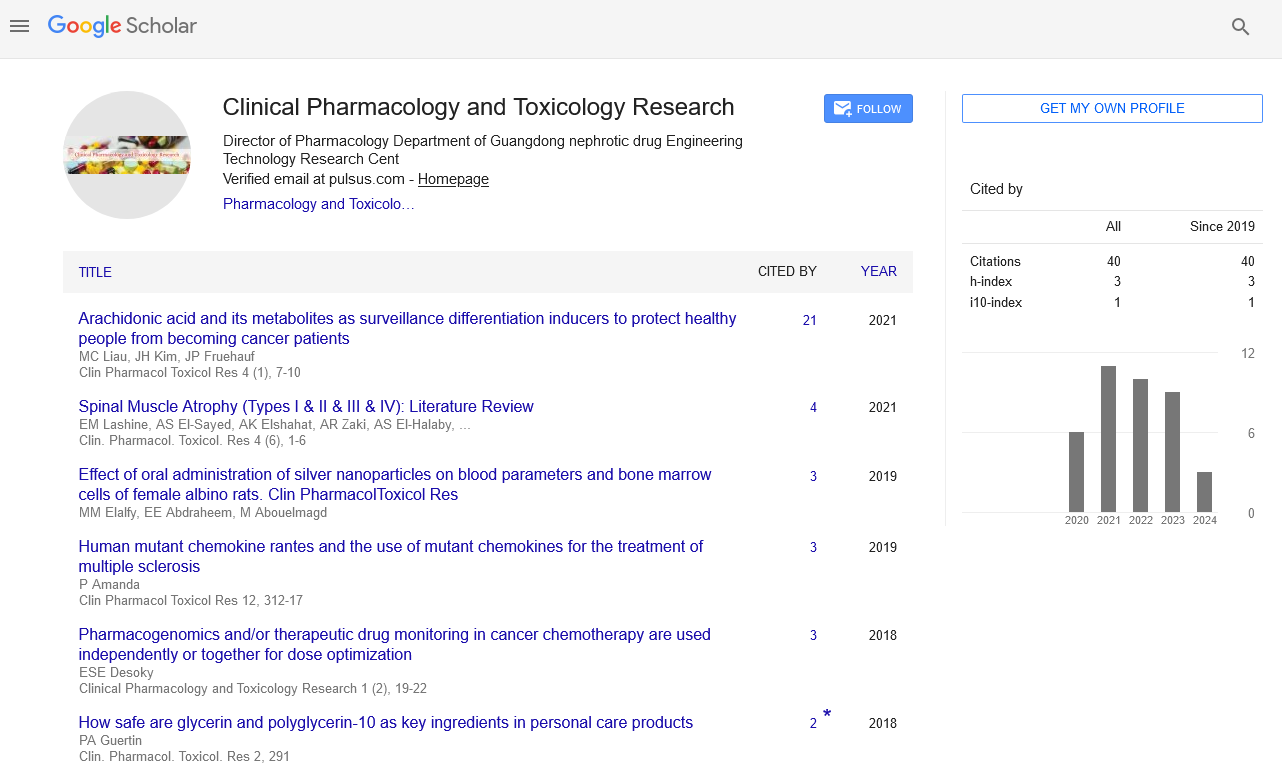
Sign up for email alert when new content gets added: Sign up
Abstract
Use of metformin according to renal function in patients with type II diabetes
Author(s): Salem R. Salem, Narasimha M. Beeraka, Ragab B. Roaeid and Tahani R. Huria*The most widely prescribed hypoglycaemic drug worldwide is metformin. Since many diabetic patients have Chronic Kidney Disease (CKD), its use is often reduced by clinicians due the risk of Lactic Acidosis (LA) as warned by US Food and Drug Administration (FDA). Widespread use of metformin will simplify the management of type II diabetes mellitus with lower incidences of hypoglycaemia. The FDA is finally requiring labelling changes about recommendations to consent the use of metformin in patients with reduced kidney function. However, there are several clinical conditions that are considered as contraindications to the use of metformin among patients with type II diabetes mellitus. The clinical conditions are renal dysfunction, Congestive Heart Failure (CHF), metabolic acidosis, and impaired hepatic function. In this paper work, the most common form of drug used by most of the patients was metformin. Previous studies showed that CHF is the most common contraindication of metformin, while in this paper work chronic renal impairment is the most frequent contraindication of metformin in type II diabetes according to renal function test. Renal impairment can be defined according to Estimated Glomerular Filtration Rate (EGFR). The use of metformin is absolutely contraindicated in patients with severe CKD (EGFR<30 ml/min/1.73 m2). Therefore, patients with moderate CKD (EGFR 30-59 ml/min/1.73 m2) are eligible to receive metformin. This paper work identified the prescription pattern of metformin across CKD stages in diabetic patients. Patient with EGFR<30 mL/min/1.73 m2 using metformin, impairments were severe enough to avoid metformin use. Patients with EGFR 30-60 mL/min/1.73 m2 and their ages above 60 years with non-controlled Fasting Blood Sugar (FBS), glycated haemoglobin (HbA1C), hypertension and ischemic heart disease are eligible to receive metformin. As metformin is rarely the sole cause of LA, renal function should be monitored closely in type II diabetic patients using metformin.
Full-Text | PDF




